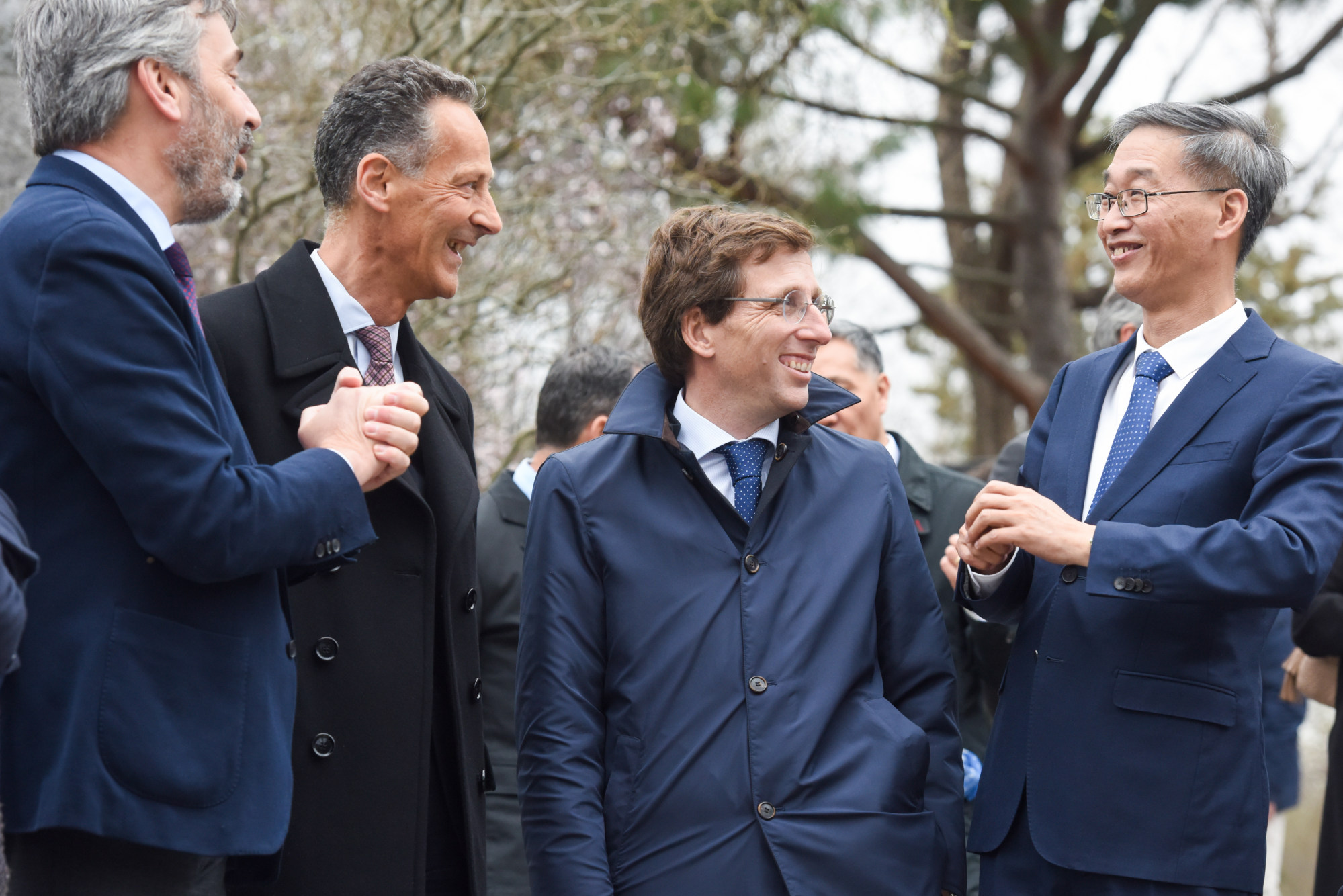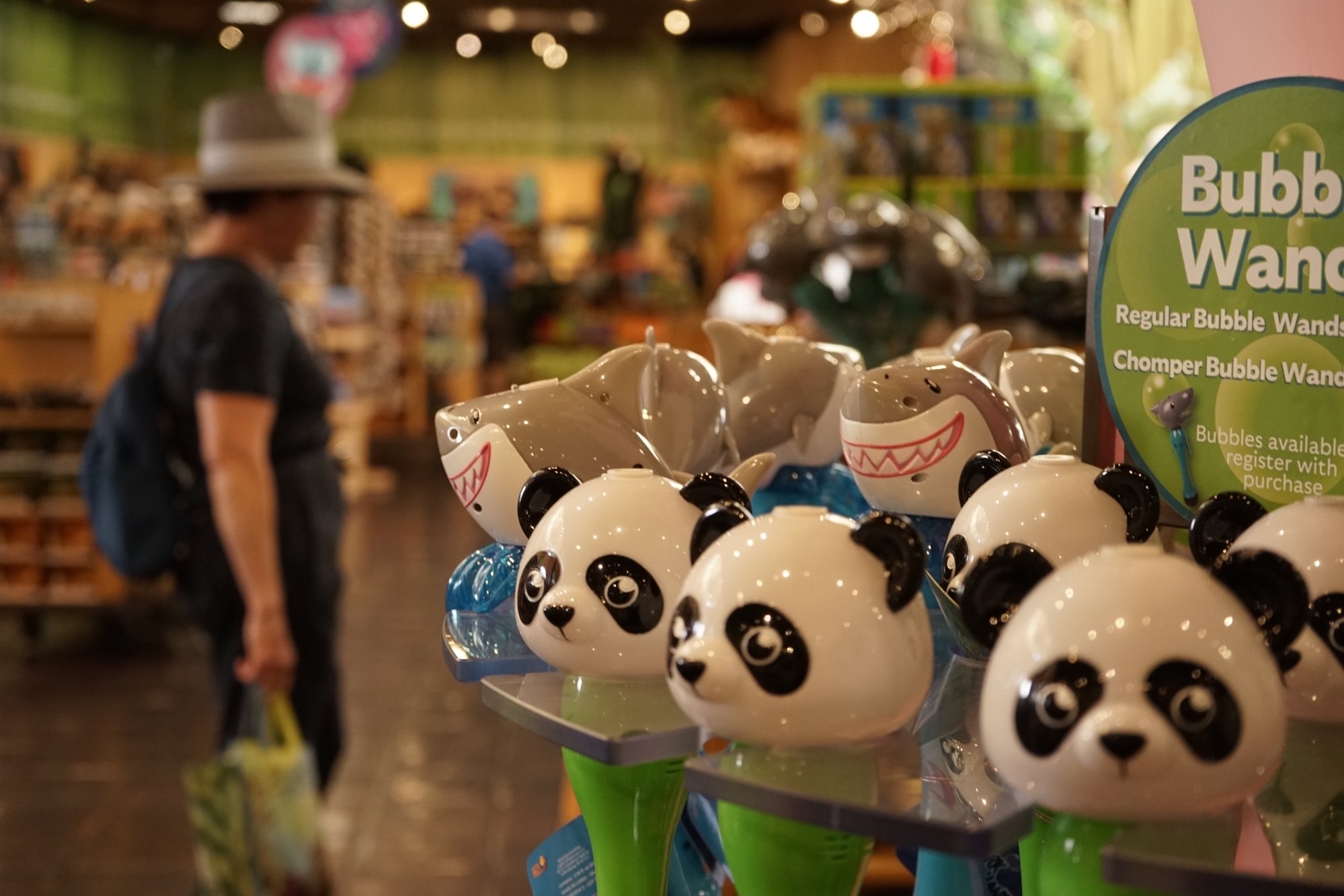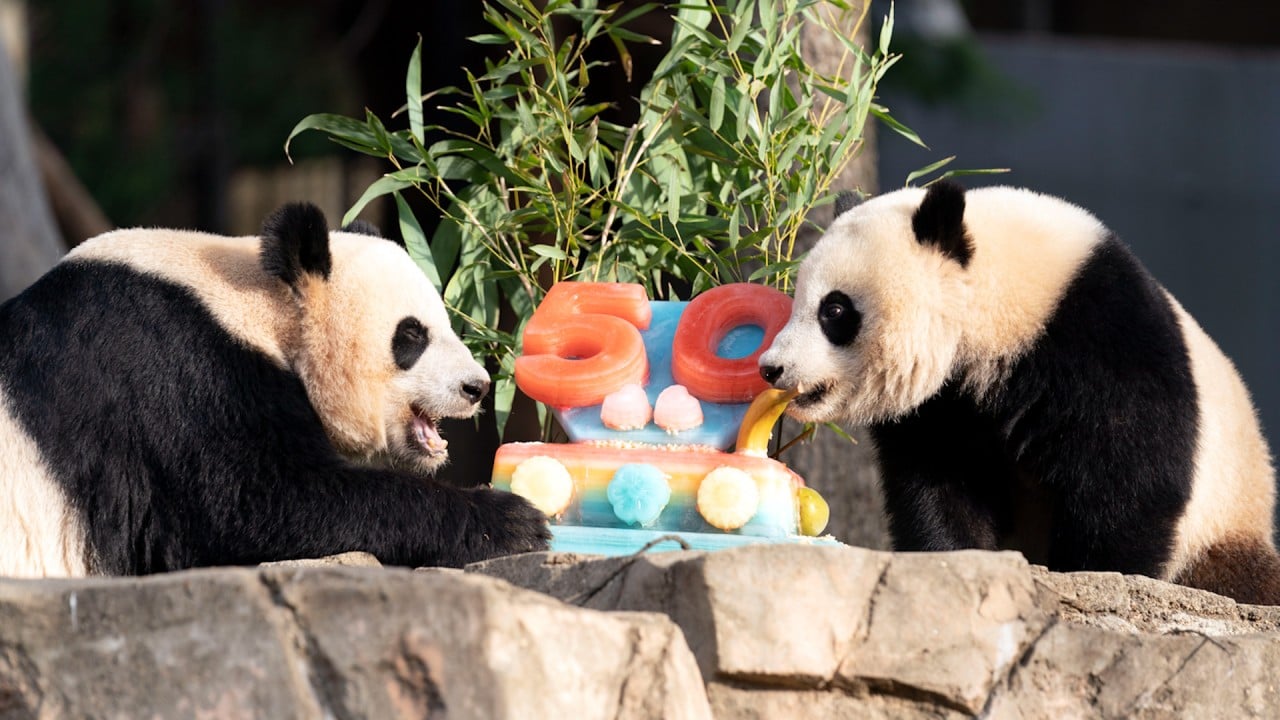Behind the warm, fuzzy imagery, however, are some careful Chinese calculations on timing and the bears’ expected reception, befitting a country that has used panda diplomacy for centuries to ingratiate itself, reward friends and punish adversaries.
“The Chinese famously tend to take the long view. Pandas are a symbol of their country with a proven record of effectiveness in softening its image and developing foreign constituencies for cordial relations,” said Chas Freeman, a veteran diplomat who interpreted for then-president Richard Nixon during his historic 1972 Beijing trip to meet Mao Zedong.
“The hullabaloo that followed their withdrawal of pandas from Washington and elsewhere was a potent reminder of this.”
Many in China felt the action was an excessive show of force and an embarrassment, sending ties into a tailspin.
Pandas coming back to US as China’s ‘envoys for friendship’
Pandas coming back to US as China’s ‘envoys for friendship’
“The withdrawals were clearly part of a toughening stance against the United States, intended to reciprocate and penalise the increasingly strident hostility of American politicians toward China,” said Freeman, who interpreted for first lady Pat Nixon when the inaugural Washington pandas, female Ling-Ling and male Hsing-Hsing, arrived in April 1972 in return for a pair of American musk oxen.
US headlines in recent days about the bears’ expected return provided some rare positive imagery for bilateral relations that have cratered.
“The pandas are an excellent symbol of goodwill that supports people-to-people connections. For many Americans – especially children – seeing the pandas in person is their first experience with something that is uniquely Chinese,” said Rorry Daniels, managing director of the Asia Society Policy Institute.
“I can’t speak to why the Chinese system does what it does, but I take Xi Jinping at his word that he sees people-to-people connections as an important stabilising element in the US-China relationship and is responding to feedback from Americans that would be sad to see the pandas leave.”
Panda diplomacy is probably the best soft-power instrument China has at its disposal
Analysts said the news – following top Chinese diplomat Wang Yi’s trip to Spain, where he highlighted the past popularity of Spain’s “Song of the Giant Panda” nursery rhyme – underscored the value China places on relations with the West.
It came despite growing tensions with the European Union over China’s alleged dumping of electric vehicles in the market as well as China’s support for Russia after it invaded Ukraine in 2022.
“This is a positive signal that China continues to value its relations with the US and Europe, despite obvious friction points,” said Jeremy Chan, a senior analyst at the Eurasia Group consultancy.
“It also coincides with China announcing unilateral visa-free travel arrangements with multiple countries in Europe, in a sign that Beijing will lean more on cultural and people-to-people ties to improve its relations with Western countries.”
Singaporeans bid ‘bittersweet’ farewell to China-bound panda cub Le Le
Singaporeans bid ‘bittersweet’ farewell to China-bound panda cub Le Le
While it is unclear how directly tied panda decision-making was to the Biden-Xi summit in November, their return suggests that US-China relations remain on a reasonably stable trajectory three months later, notwithstanding irritants, Chan added.
Tobin and her son Charlie, who live opposite the National Zoo, now walk past the empty panda cage on their visits. But she plans to keep their possible return from her son.
“He will expect instant gratification and he will be disappointed if he goes to the zoo and they are not there yet,” she said. “It’ll be a pleasant surprise – hopefully!”

Despite Tobin’s affection for the bears, they are unlikely to change her mixed view of China, she added, echoing analysts who say their reappearance is not likely to move the public opinion needle significantly.
Some 83 per cent of Americans expressed an unfavourable view of China in a March 2023 Pew Research poll, a record high and 38 percentage points more than 2018 levels.
A Chicago Council of Global Affairs survey taken in September found that 46 per cent of respondents believed US leaders needed to do more to strengthen competition, citing China’s economic and military power, Communist Party-led system and human rights policies.
“Panda diplomacy is probably the best soft-power instrument China has at its disposal, the very antithesis of ‘wolf-warrior diplomacy’ and similar ham-fisted propaganda campaigns, and I suspect they know this,” said Ethan Paul, a research fellow at the Quincy Institute.
“However, I would caution that a ‘vibes-based detente’ can only go so far and last so long. Ultimately, for any detente to have real teeth and staying power, both sides must be willing to make serious, tangible compromises.”
‘Sad to see them go’: UK’s only pandas return to China after 12 years
‘Sad to see them go’: UK’s only pandas return to China after 12 years
Among those compromises, Paul added, would be progress on: escalating military competition in the Asia-Pacific; economic sanctions; tech rivalry; and rising tension over Taiwan.
“We hope that the new round of international cooperation on giant panda conservation between China and the US will further enrich scientific research in protecting giant panda and other endangered species, and forge closer bonds between our peoples,” Liu Pengyu, spokesman for the Chinese embassy in Washington, said.
San Diego was chosen as the first venue for new US pandas, analysts said, in part to signal appreciation for policies in California, an American state with GDP of US$3.89 trillion, the world’s largest subnational economy.
“The return of pandas to San Diego is, in part, an effort to reward California, the state that has remained most visibly engaged with China in recent times,” Freeman said.
“China does not want to foreclose an improvement in relations with the United States,” he added.
“If the withdrawals were a tactical reminder of the costs of a poor relationship with China, the reinstatement of panda exchanges is a strategic move to preserve the possibility of friendlier ties when this becomes politically possible.”
Another factor: California Governor Gavin Newsom’s well-received visit to Beijing weeks before the summit and his explicit comments that he did not envision US-China relations as a zero-sum game.
Nor did it hurt that Newsom appears to have presidential aspirations and could be a useful contact in the future.
Xi Jinping and Gavin Newsom strike positive tone on US-China climate cooperation
Xi Jinping and Gavin Newsom strike positive tone on US-China climate cooperation
But some say Beijing’s decision to call back pandas shortly before the November summit – a potential hedge should it founder – was mishandled.
“Not renewing the panda agreement before the last Biden-Xi summit was a missed opportunity. In retrospect, one of China’s goals at that meeting was to calm relations, and announcing renewal of the panda agreement was an obvious way to further that goal significantly,” said Jeffrey Moon, head of the China Moon Strategies consultancy.
“Those who are most concerned about improving US-China relations will see the return of pandas as a gesture of friendship,” added Moon, a former US consul general in Chengdu, where China’s main panda breeding centre is based.
“Cynics will see the announcement as a return to the old sweet-and-sour Chinese playbook for managing relationships by alternatively charming and threatening foreigners.”
Sourabh Gupta, senior fellow at the Institute for China-America Studies in Washington, said he wouldn’t be surprised if China drags out negotiations for the Washington pair until after the November US presidential election, a likely showdown between Biden and former president Donald Trump.
“If Trump wins, the negotiations will get stuck in the mud and the DC panda enclosure will stay empty,” he predicted.

Others said that pandas could become a pointed political signal if China decides to retrieve them prematurely under a second Trump administration.
Panda exports have dovetailed with major trade deals, diplomatic initiatives and foreign statements on Tibet or Taiwan that Beijing views favourably, said researcher Linda Zhang in an American Enterprise Institute report, “Pandas: China’s Most Popular Diplomats”.
Significant panda exports and reversals took place during China’s opening to the West; following the 1989 Tiananmen crackdown as it tried to burnish its reputation; and during periods linked to President Xi’s increasingly assertive foreign policy.
As tourists Kim Gray, a teacher, and her 11-year-old son Harrison, emerged from Washington’s Woodley Park metro stop heading for the National Zoo, they greeted the news of more US pandas enthusiastically.
As residents of Atlanta in the state of Georgia, they live in the only remaining US city that has pandas, which are scheduled to return to China this year. The Grays hope their zoo can extend its panda lease and are pleased that others can also enjoy the beloved bears.
“They should be in every zoo,” Harrison said.


